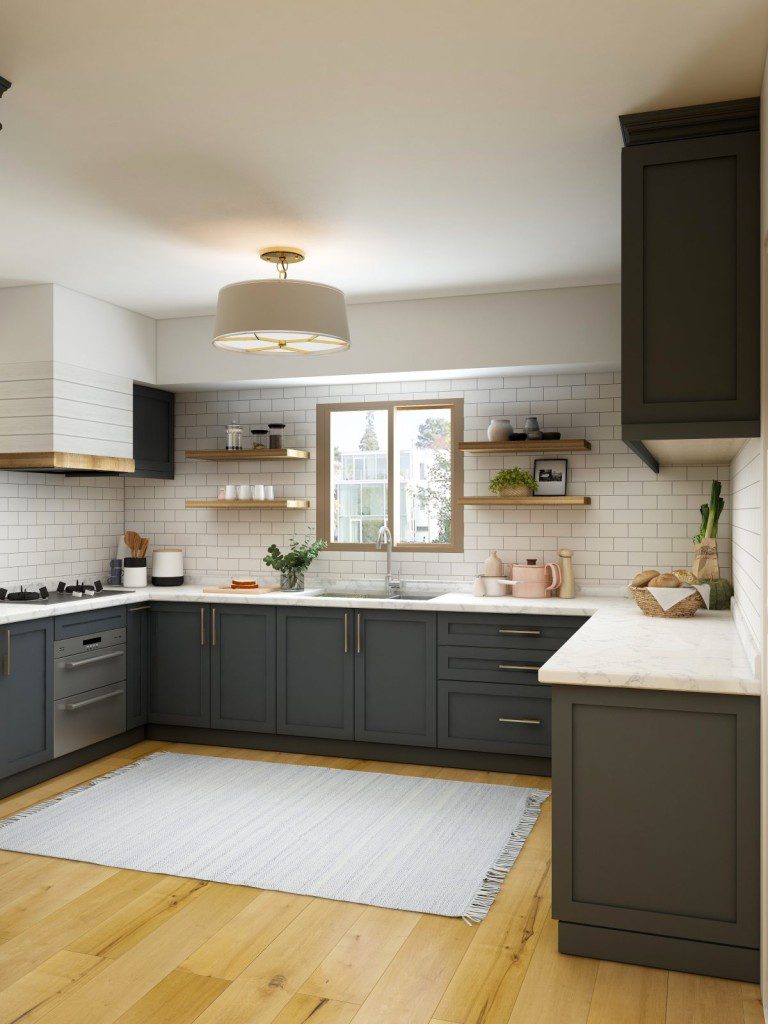Home renovations, as old as the structures people dwell in, continue to play a pivotal role in transforming living spaces. These alterations range from minor to complete overhauls, each with significant implications for the homeowner. Beyond the apparent aesthetic and functional upgrades, home renovations profoundly influence various aspects of life, from financial considerations to psychological well-being.
This article delves into understanding the deep impact of home renovations.
The Economic Implications of Renovating a Home
Renovating a home is a strategic financial decision with potential high returns. It’s an investment that can significantly boost the property’s market value. Renovations like kitchen updates or adding an extra bathroom often increase resale values, making them attractive to future buyers.
However, the key is to balance the renovation cost and the potential increase in home value. Overspending on overly personalized renovations might not appeal to the broader market, potentially leading to a loss. Therefore, homeowners need to research and invest in renovations that are known to offer the best returns.
Preparation and Planning: Key Tools for Success
Effective preparation and planning are the bedrock of a successful home renovation. This phase goes beyond mere brainstorming; it involves budget setting, scope definition, and meticulous selection of contractors and materials. A well-planned renovation considers future needs, potential challenges, and the overall flow of the project. For example, a bathroom renovation isn’t just about aesthetic upgrades but also involves selecting the right bathroom demolition tools for efficient and safe demolition.
The right tools can minimize disruption and create a smooth renovation. This stage is also crucial for obtaining necessary permits and ensuring all planned works comply with local building codes.
Design Choices and Their Psychological Impact
The design choices made during a renovation can significantly influence the psychological well-being of the occupants. Colors, lighting, and layout are not just aesthetic elements; they affect mood, perceptions of space, and overall comfort. Light and neutral colors, for instance, can make a room feel more spacious and serene, whereas bold colors might energize a space.
Lighting plays a crucial role, too; natural light boosts mood and productivity, while warm lighting creates a sense of comfort and relaxation. The layout should promote easy movement and interaction, making the space functional and emotionally uplifting. Thoughtful design choices can turn a house into a comforting and inviting home.
Sustainability and Eco-Friendly Renovations
Eco-friendly renovations are gaining momentum as homeowners become more environmentally conscious. These sustainable practices are essential for reducing carbon footprints and promoting a healthier living environment. Utilizing energy-efficient appliances, such as LED lighting and low-energy HVAC systems, can drastically reduce electricity usage.
Incorporating sustainable materials like bamboo flooring or recycled glass countertops adds aesthetic value and minimizes environmental impact. Water-saving fixtures like low-flow toilets and showerheads can contribute significantly to water conservation. While potentially costlier upfront, these eco-friendly choices lead to considerable savings in utility bills, making them financially beneficial in the long run.
Navigating the Legal Landscape of Home Renovations
Understanding and complying with the legal aspects of home renovations is crucial to avoid
future complications. Every renovation project, whether it’s a simple room makeover or a complete overhaul, must adhere to local building codes and regulations. This includes obtaining necessary permits before commencing any work. These regulations are in place to ensure safety standards are met, and the structural integrity of the building is maintained.
Homeowners should also be aware of any zoning laws or historical preservation restrictions that may apply. Ignoring these legalities can lead to costly fines, delays, and even the dismantling of unauthorized work, making legal compliance a vital aspect of planning any renovation.
The Social Aspects of Home Renovations
Home renovations can significantly impact the social fabric of a neighborhood. When a homeowner invests in renovating their property, it not only enhances the aesthetic appeal of their own home but can also elevate the entire neighborhood’s appearance. This improvement can increase property values in the area, benefiting all residents.
Additionally, a well-executed renovation can inspire neighbors, creating a domino effect of improvements and updates throughout the community. This communal upliftment fosters a sense of pride and belonging among residents, strengthening neighborhood ties. Renovations, therefore, play a role not just in personal satisfaction but in shaping and enhancing the social dynamics of a community.
Takeaway
Home renovations, though challenging, offer a unique opportunity to reinvent and rejuvenate one’s living space. They carry profound impacts that go beyond the physical changes to the structure. By keeping the information mentioned above in mind, homeowners will understand these multifaceted impacts when considering embarking on such a project. With careful planning and a clear vision, they can transform their space into something that meets their needs and enhances their life in various ways.





